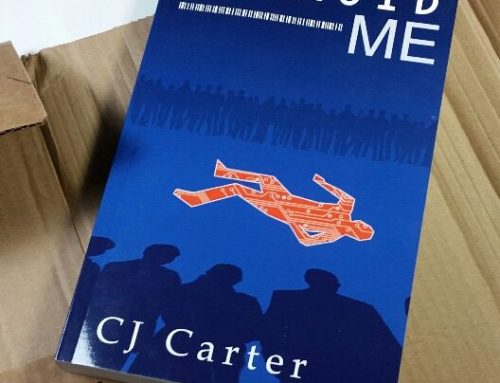Writers need readers
That seems sort of obvious, doesn’t it? Writers need readers. In this context, however, I’m not talking about the people who purchase or borrow a book to while away some time. I’m talking about those oh-so-important, and often unsung, contributors to that final work.
Writers often talk about needing readers during certain stages of the writing process. Perhaps the better word would be “critiquers” (I would say “critic”, but that has bad connotations). These are the brave souls who read unfinished works and give their opinions about it. Seems easy, but it really isn’t if writers are going to get the full benefit of your time and effort. Here are a few tips to help clear up any confusions:
 1. No matter how cute they might be, cats don’t make good readers
1. No matter how cute they might be, cats don’t make good readers
Yes, I know it seems obvious, but who of us hasn’t fallen prey to those desperate pleadings? Those sad eyes? The well-timed meow which says that this time they would buckle down and do the job right?
But seriously…
2. It must only be about the work
Writers new to the craft often have difficulties in separating criticism from a personal attack. They’ve labored for quite some time on a piece and want everyone to fall in love with their “baby”. When that doesn’t happen (does it ever happen?), they can become very upset and angry. Friendships have been known to end. It’s for this reason that it’s very important that some perspective be acquired.
Readers generally are well-acquainted with the person whose work they are reading. The best thing they can possibly do is to put that completely out of their mind. Just read the words and comment on the words.
3. Writers should be readers for other writers
Nothing removes the personal feeling from a writer than having to be a reader. After one or two sessions, they come face-to-face with the truth that the critique isn’t about the other writer, but about the work itself…and only about the work.
More importantly, this is probably the single best way for a writer to improve how they write. By seeing other writer’s errors, an author learns from their mistakes, or realizes the mistakes that they have been making.
When writers share reading duties with each other, they also learn what makes for a good critique. You write what you want to see in yours, they write what they like to see in theirs, and slowly you both find that place where useful information gets exchanged consistently.
4. Writers must be clear about what they want
Readers need to know what their job is. My preference on the first reader’s drafts (generally my second written draft) is that the focus be on the bigger elements of the story. Does the story make sense? Does the pacing seem right? Are there any holes of information? Pockets of too much information? Do the characters work? Should characters be added, deleted, or changed? Things like that. This draft I only give to one or two readers.
I don’t usually put out another reader’s draft until I think the story is solid, but still has the flexibility for me to make changes. Readers are encouraged to discuss anything at this point, but I’d prefer that nitpicking about spelling and stuff be glossed over. This is the draft where I want the harshest criticism of the piece. Anything that just doesn’t work somehow, tell me about it.
When I’m about finished, I let one more reader go through the work with a fine-toothed comb to find whatever niggling little errors there might be.
5. Readers must be complete and honest
Within the framework asked by the writer, the reader has a responsibility to give the writer the information they need. Trust me, it is doubtful that any work is so perfect that no criticism can be made. J.K. Rowling gets notes from her readers, there’s no reason why any other writer should be given more slack.
Here’s the deal: saying that “I liked it,” “It was great,” or “Don’t change a thing,” and just leaving it at that, doesn’t help the writer at all. In fact, what you’ve done is waste the writer’s valuable time. Plus, if the writer is serious, they have to then coax out of you the tidbits of information they need.
On the other hand, there is no reason to be nasty. If you didn’t like a section, saying something like, “This didn’t work for me,” is infinitely better than, “I would say this is a pile of s**t, but that would be giving it too much credit.” Better yet, try to explain why it didn’t work for you. You don’t have to offer solutions, but at least explain the problem. You didn’t like it because X was acting out of character. You didn’t like Y because you guessed it was a werewolf in chapter 3. You didn’t like Z because all of a sudden the story got boring.
While it seems like all I’m talking about is finding fault, if the reader particularly likes something, they should point that out, too — especially if they can say why they liked it.
I find it best to read the entire work all the way through without taking any notes. When you are done, write down your impression. Then, go through the work again slowly, taking notes about whatever it was the writer wanted notes on. Be specific. It might even be harder than that HS essay you had to write because this time it’s for real and you can’t really get away with BSing your way out of it.
6. Writers must take seriously all comments received
If you didn’t want the comments, no matter how blunt, then you shouldn’t have had other people read your work. It’s rude.
When someone, or several someones, don’t like something you’ve done, regardless of how thick your skin is, it hurts. This is where you really have to consider the feedback you’ve gotten. A good general rule of thumb is if two or more readers have a problem with some element, then you really need to look at that element. If only one reader had a problem, then it’s up to the writer to decide if it is just one person’s opinion, or if it’s something that should be looked at that no one else happened to mention.
As a writer, the best thing you can do is be gracious. While a few small attempts to explain your reasoning are OK, don’t try to press your point. Better is to try to get an expanded explanation from your reader as to why they had the problem. The more information the writer can get, the better chance they have of correcting the problem.
What if someone totally eviscerates your work? Trust me, that happens. It can shake the writer to their core. It’s a weird feeling of anger, fear, and hopelessness. All you can really do is buck up and go through the process.
First, I think you need to consider the source. Is this someone who wants to help, or is this person (possibly) the jealous type? It doesn’t affirm or invalidate the comments, but does help give some context. Then, as with all other readers, consider all the comments. Do they have merit? Though it’s tough to be objective at this point, it is the writer’s job. If, in the end, this gauntlet of criticism is more helpful to the work than not, despite any extra work you now have to do, thank your lucky stars that someone cared enough to not tell you only what you wanted to hear.
7. Writers must choose their readers well
Readers come in many forms: from the casual “civilian” to the seasoned pro. Few writers get their choice of readers. Often, all you get is a couple of people you’ve used before combined with a few “newbies”.
My feeling is that it’s good to have a decent mix. For best results, for at least two of the drafts you need to have someone read who is at or above your writing level. These are people who’ve read, and who have had their own readers, before. They understand the stakes and know how to deliver. They understand writing and what goes into telling a story.
I think you also need to have people you trust who are “off the street”. These can be friends, family, etc. They represent the reading public. While they can’t go into the finer points of plot or story arc, they will focus more on how well you actually tell the tale. Is it an easy read, or did they have to struggle?
Then, to fill out the ranks, I like to grab a few people that are sort of in between these two groups. They are almost like the control group…they tend to confirm or refute some of what someone in another group notices.
8. Reading isn’t a leisure activity
Writers need to give readers a fair amount of time to read a work. Conversely, readers need to read a work quickly and give their notes to the writer in a timely fashion. While it’s understood that people have lives, the thing is that this is the writer’s job. Don’t disrespect them. If a reader doesn’t have the time or interest to do the job in short order, then they need to bow out…don’t leave the writer hanging.
How long? I may be perceived as impatient by some, but I feel that 1-week for a story, 2-weeks for a screenplay, and 3-to-4-weeks for a novel is more than enough time. Now, if you need more time, let the writer know…but only if the reader has already started and it’s taking longer than expected. Don’t grab an extension just to try to save face. Again, it’s rude.
9. Complete works only
This is an area where a lot of writer’s groups fail the budding writer. They want, say, a new chapter every week. It’s really a disservice to the writer and to the work. Many problems, especially in early drafts, manifest themselves over the span of a work…not a chapter at a time.
It’s also important that works get completed and not have bits and pieces nattered about ad tedium along the way.
Is there an exception to this? Of course. The best example is the writer showing part of a work to an established reader with whom they share a dialog. The feedback can be trusted because the reader has a good understanding of the writer and will be communicating information back and forth so that their views aren’t stuck in a vacuum.
10. Never use more than three readers for any single draft
Just as too many cooks can spoil a broth, so too can too many readers muddy a plot. Use three. It’s enough to give good perspective while still being manageable. Plus, since it isn’t too common to get reports back from all three (odd, that), and one of them will often be of dubious utility in any case, you still have a fair chance of getting at least some good feedback.
11. R-E-S-P-E-C-T
(Y’all know that #1, regardless of its sagacity, doesn’t count, right?)
Most of this boils down to respect. Writers need to accept and respect the opinions and observations of their readers; otherwise, why ask them. Don’t just go through the motions, actually listen and consider if what was mentioned will improve your work. Even if you aren’t sure, try it out. It’s only words, and you’re in the middle of rewriting anyway.
Readers need to respect the job of the writer. Don’t try to do their work. Don’t do the rewrite for them (this is especially bad when it is unsolicited). It’s one thing to demonstrate what you mean, quite another to let your ego take over.
Readers are also cautoned not to be jealous if the writer writes better than you, just give your opinion as you agreed to do. Conversely, if the writer is obviously having difficulty, help them within reason, but remember that everyone has to go through the learning curve. Be nice.
Both writers and readers need to respect the work. This isn’t about being a good friend or anything else personal. It’s about wanting the WORK to be the best that it can be.
In conclusion, your honor
It’s an interesting balance, this dance that writers and readers do. The best readers sometimes become mentors or collaborators. A director friend of mine once read a short-subject screenplay I’d written based on one of the more obscure Grimm tales. That turned into a marvelous experience that caused the script to bloom into a feature-length screenplay that came just-this-close to a sale (it got beaten out, at the last hour, by a recognizable title whose name will stay with me).
On the other hand, I’ve had readers want to take my story and turn it into something that they would write themselves. That definitely left a sour taste in my mouth.
I think the worst, as I mentioned above, are the readers that give no useful feedback. Especially in the early stages, I know a project has flaws. If someone doesn’t even point out the obvious ones, I know that I simply sat around, waiting, for nothing. Sadly, a sizeable portion of untried readers fall into this category.
In the end, the writer needs to remember that it is their name that is going on the bloody thing. Even when suggested by a reader, they need to own every choice that was made. When writers get good input from their readers, and the writer listens, then works almost always improve beyond what even the writer had expected. It’s such a gift when that happens.





